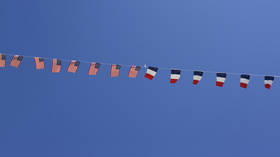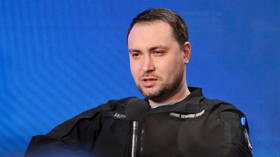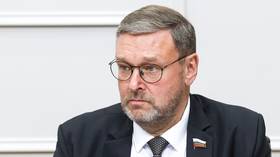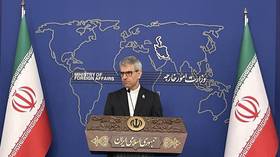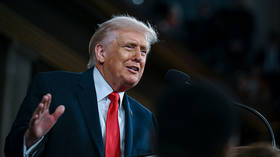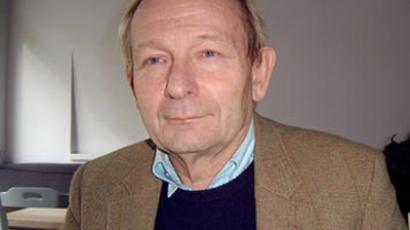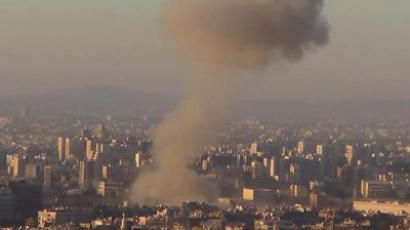‘West wants end of Syria as a functioning independent state’
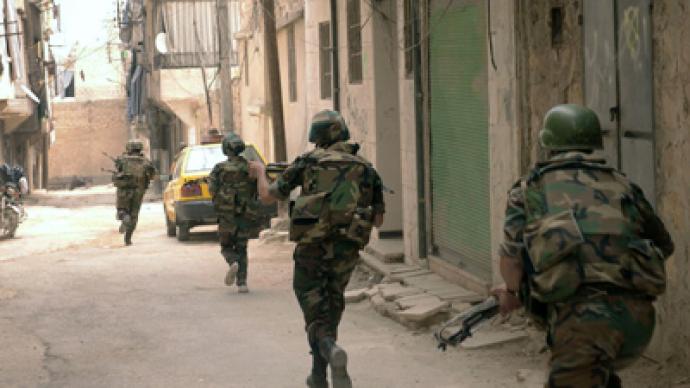
The Syrian insurgency will never win its war because its means are unsupported even among the opposition, political analyst Dan Glazebrook told RT. But thanks to a flood of weapons from the West, they will continue to destabilize the country.
Syria, Glazebrook says, is the only link keeping Western powers from dominating the region, which is why the anti-Assad coalition is sending weapons and funding the “proxy war” through Saudi Arabia and Qatar.Western governments, he says, support the rebels because once Syria falls, they hope to “roll out the program of a final solution” for the Palestinians, Southern Lebanon and Iran.RT: Russia has reiterated calls for what it calls a balanced solution to the Syrian conflict – why aren't more countries supporting Moscow's proposals?Dan Glazebrook: Well, it is a good question. In fact it is not only Moscow that is making these proposals. A week ago in Damascus, the National Coordination Committee, which is the main organization behind the initial outbreak of peaceful protests in Syria, actually had their own conference where they also called for a cease fire on both sides. They’ve criticized the militarization of the conflict. They’ve criticized the countries that have been arming the rebels.We see how the Western-trained and sponsored militia on the ground in Syria has responded. They’ve responded with a wave of bomb attacks over two days in Damascus. The crucial point is that the West does not want to see a peaceful resolution to this conflict. It wants to destabilize, that is the name of the game. They do not want a peaceful resolution. They don’t want any compromise, because what are their main strategic aims? Remember, their main strategic aim is to destroy Syria as a functioning independent state, because at the moment Syria is part of the alliance with Iran and Hezbollah. Now, Hezbollah's independent existence, which was shown by Hezbollah's defeat of Israel in 2006, that is the one thing protecting the Palestinians from Israel just unilaterally imposing some kind of once-and-for-all 'peace deals' on the Palestinians that would condemn them forever to living in little cantons in a sea of Israeli settlements – the one thing preventing Israel from doing that is the existence of Hezbollah, the arming of Hezbollah by Iran and Syria. Nasrallah, the leader of Hezbollah himself, said that Syria was crucial in the 2006 victory by Hezbollah against Israel. So the West is determined to keep this war going, to destabilize Syria, to make sure that they cannot any longer play the role that it has been playing in supporting the Palestinians and preventing a successful Israeli attack on the Palestinians, on Lebanon and on Iran. Once Syria falls, the hope is for the West and for the Zionists that they will then have a free hand to go and implement, to go ahead and roll out, that program of a final solution for the Palestinians, destruction of Southern Lebanon, destruction of Iran. Syria is a kind of link that so far is preventing that. They do not want a peaceful solution. RT: With Washington now pledging $45 million worth of extra support to the rebels, how much longer can the opposition keep up the fight without direct foreign intervention?DZ: We have to get over the idea that there is no foreign direct intervention. There is a foreign direct intervention already now – and there has been for many, many months. There were groups on the ground calling themselves part of the Free Syrian Army, but there are entire units made up of Libyans, of Lebanese, of people from Jordan, of people from Saudi Arabia. They have been armed and also equipped and trained by the SAS and by the CIA, at camps in Turkey. In fact if the situation in Libya – the war in Libya last year – is anything to go on, from what we know happened there, they were probably under the direct command of British and US Army officers. So I do not think it’s true to say that the current situation is one without direct foreign intervention. The other thing to bear in mind, the $45 million of aid from the US is just the tip of the iceberg. Most of the weapons and the funding for the West's proxy war against Syria is being channeled through Saudi Arabia and through Qatar. Now, just Britain alone for example, last year provided £1.75 billion worth of weapons to Saudi Arabia, and much of it is now ending up in the hands of these proxy militias. So that $45 million figure is actually just the tip of the iceberg. And it is very tricky that the US and Britain, and Britain in particular, often says it is just providing non-lethal equipment: communications equipment, night vision goggles, this kind of thing. But it is providing weapons, but it’s just doing it through third parties. The question of how long this war can go on is a good question. It is not clear. They can’t really win these rebel groups, because they don’t have the support of even most of the anti-Assad forces. As I have mentioned, the main peaceful opposition group does not really support the strategy of the Free Syrian Army, does not support the Syrian National Council and in the key cities of Aleppo and Damascus, which is where more than half of the Syrian population live. Most of the population is behind the government, supports the government. A couple of weeks ago, a Free Syrian Army Officer admitted it himself, saying that ‘the problem for us here in Aleppo is that 70 per cent of the population supports Assad,’ and it has always been that way. So they can’t win with that lack of popular support. Unfortunately, because they’re getting this huge flood of weapons from the outside, they can continue to destabilize. That is, unfortunately, they may be able to keep the war going for some time. It does not mean that they’re actually going to be able to win.


